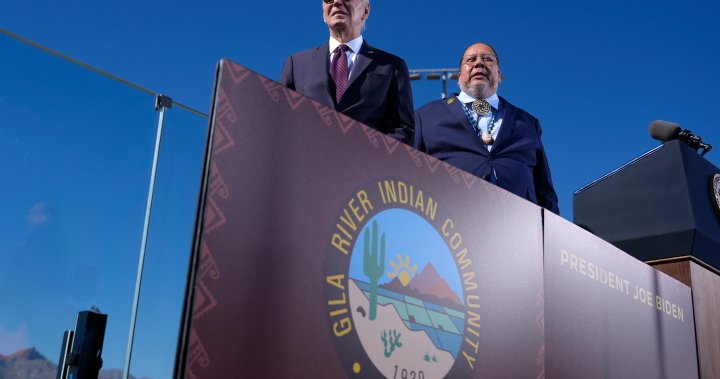Canadian Indigenous leaders are responding to U.S. President Joe Biden’s recent apology for the country’s residential school system, stating that it is just the beginning of a long journey towards healing the harm caused to generations. Biden’s apology comes after an investigation led by U.S. Secretary of the Interior Deb Haaland, which was sparked by the discovery of 215 unmarked graves at a residential school site in Kamloops, B.C. Former Assembly of First Nations national chief Phil Fontaine believes that Canada’s actions in addressing its own history have influenced the U.S. to confront their past as well.
The investigation initiated by Haaland in 2021 revealed that at least 973 Native American children died in the U.S. boarding school system due to disease and abuse, with Biden acknowledging that the actual number is likely higher. The U.S. government enforced a policy of forced assimilation in 1819, aiming to “civilize” Native Americans. Many Indigenous children were subjected to physical, emotional, and sexual abuse in the boarding schools, which were mainly run by churches. The investigation uncovered marked and unmarked graves at 65 out of over 400 boarding schools across the U.S.
Haaland, whose grandparents attended boarding school, conducted listening sessions for survivors to share their experiences over a two-year period. She emphasized the importance of a formal apology from the federal government for the atrocities committed in the boarding school system. Fontaine suggested that the U.S. should establish its own truth and reconciliation commission, similar to what Canada did in 2008, and consider compensating survivors. A pending bill in Congress proposes the creation of a “truth and healing commission” to document the history of boarding schools and recommend government actions.
Despite Biden’s apology, there is a recognition that a significant portion of Americans are unaware of the dark history of the U.S. boarding school system. In Canada, the Truth and Reconciliation Commission shed light on the residential school system’s impact, leading to a national understanding of the atrocities committed. Eva Jewell, a sociology professor, believes that achieving a similar level of awareness in the U.S. will take time, citing the political culture’s resistance to justice-oriented education. Stephanie Scott from Canada’s National Centre for Truth and Reconciliation remarked that Biden’s apology is just the initial step towards addressing ongoing harm and achieving reconciliation.
The 2015 report by Canada’s Truth and Reconciliation Commission revealed that Canada drew inspiration from the U.S. in establishing its residential school system. The commission documented how lawyer Nicholas Davin’s report on American industrial boarding schools for Indigenous children influenced Canada to create a similar system in 1879. Indigenous leaders in Canada are hopeful that the U.S. will follow their example in acknowledging the traumas of the past and working towards healing and reconciliation. Overall, the response to Biden’s apology indicates a collective call for meaningful actions and reparations to address the intergenerational impacts of the residential school system.



